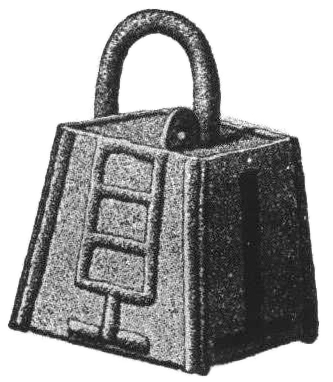
They control our money, our armed forces, our tax inspectors, jails, and police. Against that, we the people wield our biggest weapon — information.
The biggest threat to people in positions of power is the flow of news and ideas. The internet is the largest menace, the most powerful tool of the people, so we always knew the pushback was coming. Those who control the net, control the ability of the people to organize en masse, and to judge who is being honest, and who can be trusted. The Internet was vital in publicizing the climate data that contradicts the government climate scientists, because the mainstream media sure didn’t do it.
If SOPA PIPA is stopped (as it appears it might have been, as 6 supporters pull out) the only thing we can be sure of is that there will be other attempts to stop us speaking freely. This is an unending battle.
How bad is SOPA PIPA?
On closer inspection, the legalese in the bill has the potential to eviscerate free speech….and like NDAA, without proof…only with suspicion of “wrong-doing”. It’s all about copyright infringement. If you tick off the powers that be, and you’ve quoted someone, somewhere, saying something, you may have infringed on their copyright. As a defendant, you are not even present at the legal proceeding allowing “them” to shut you down until you prove yourself innocent.
How do they shut you down? Search engines are required to remove you from their listings. Internet Service Providers can be ordered to block access to your site. Advertising networks and payment providers can also be forced to cease doing business with you. This continues until you are proven INNOCENT. Wait – I thought it was innocent until proven guilty….oh….that was “before” the NDAA.
This is not about breaches of copyright:
SOPA and PIPA are proposed government regulations that go far beyond protection of IP.
The regulations in the act are clearly designed to be abused by the government to censor parts of the internet and require organizations such as Facebook and Google to become content policemen.
Source: Economic Policy Journal
There are better ways to solve the piracy problem:
It’s easy to stop movie piracy, put all the movies online for a reasonable fee (say $3 to watch). Apple’s iTunes has mostly supplanted illegal music downloading by offering most of the worlds songs for $1+. — Matthew Lock
(Useful discussion on itunes and piracy here and here.)
Where will the demands end?
 The establishment will keep asking for more until something stops it… and what stops it growing? Nothing except us. It grows until the protests become too strong. We must not only protest just to keep what is ours (our freedom) but we must teach our children that protesting unwanted laws is a fact of life.
The establishment will keep asking for more until something stops it… and what stops it growing? Nothing except us. It grows until the protests become too strong. We must not only protest just to keep what is ours (our freedom) but we must teach our children that protesting unwanted laws is a fact of life.
It’s just as with the laws of physics: a body in space will move until a force opposes it, children will ask for more until they test the limits, and governments will grow until something stops them.
Protests work. More people are checking Wikipedia during the blackout, and the only pages they can see are SOPA PIPA ones. Better to protest loud and strong now than wait til our freedom to speak is reduced.
History repeats — Rulers opposed information flows
Jeffrey Tucker compares the internet to the printing press:
For government to attack Internet freedom today would be akin to burning the seventh-century manuscripts of St. Isidore of Seville, who produced, in the hardest times, the book that summarised all the knowledge of the ancient world (a Wikipedia of his time) and remains a primary source today.
It would be like murdering Venerable Bede in the eighth century, so that he could not have written his history of England that passed on knowledge and wisdom in the darkest of times.
It would be like smashing the 15th-century Gutenberg presses so that printing could have never gotten off the ground.
Historians constantly remind us that all great leaps in human history are inspired by the sharing and spreading of information. This is the precondition. When the first crusaders returned with new manuscripts from the ancient world, we began to see the first signs of the birth of modernity in the West. When populations moved to cities where they could leave behind their isolation and collaborate with others, economic growth followed. And when the Internet blasted down the barriers around the world and allowed anyone to discover new ideas, we saw a new dawn of technology and efficiency.
Tucker reminds us that the government don’t need new laws to shut down sites, they already do it:
* Just this past week, a judge ruled that a 23-year-old British
college student can be extradited to the US for a 10-year prison
sentence, all for linking to other servers that illicitly host
copyrighted content;
* Late last year, US officials shut down 150 domains without hearings
or trials on grounds that they were suspected of selling goods that
violate trademark law. It was done on “Cyber Monday” for a reason:
It was an announcement to the digital world that government is in
charge;
* In 2010, the feds seized some 73,000 domains for the crime of
linking to content that was said to be distributed illegally in
violation of copyright.
Tuckers whole article is worth reading “Blackout Wednesday: The Time Has Come“
Images: 1 Wikimedia 2 Viking age padlock. Found on Björkö in Mälaren, Sweden, Nordisk familjebok (1917), vol.26, Smideskonsten.